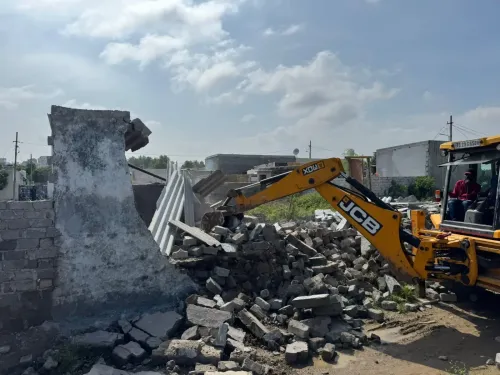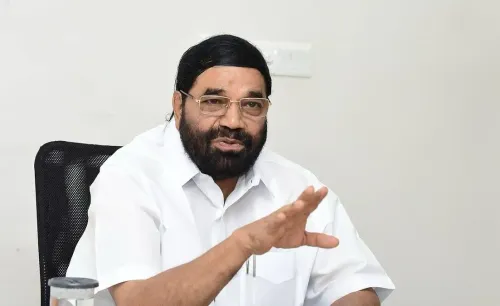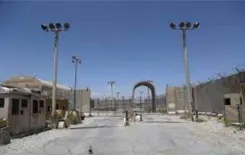Did the Punjab Assembly Truly Unite Against CISF Deployment at BBMB Projects?

Synopsis
Key Takeaways
- Punjab Assembly unanimously rejected CISF deployment.
- State police deemed capable of ensuring security.
- Annual financial burden of Rs 49.32 crore highlighted.
- BBMB installations have been secured by Punjab Police for 70 years.
- Punjab asserts no surplus water for sharing with other states.
Chandigarh, July 11 (NationPress) The Punjab Assembly decisively passed a resolution opposing the placement of Central Industrial Security Force (CISF) personnel at the hydropower facilities managed by the Bhakra Beas Management Board (BBMB). The assembly stressed that the state police is fully capable of ensuring security, highlighting that the central force's deployment would impose an annual financial burden of Rs 49.32 crore on the state.
Water Resources Minister Barinder Kumar Goyal presented the resolution in response to the Centre’s directive to station CISF at the Bhakra-Nangal dam and other related projects.
The resolution states, “In previous years, the Power Ministry submitted a list of essential BBMB installations lacking CISF protection and emphasized the need for comprehensive security measures.”
“Punjab has revisited this matter and communicated its strong objections against CISF deployment to the BBMB through letters dated May 27, 2025, and July 4, 2025. Despite these objections, the BBMB appears to be considering proceeding with the CISF deployment,” it further notes.
Previously, the Congress-led Punjab government had consented to the Centre's proposal for CISF deployment on October 21, 2021. However, the current Bhagwant Mann Cabinet retracted that consent on July 7 and decided to introduce the resolution in the Assembly.
It emphasized that CISF deployment is unwarranted, as BBMB installations have been secured by the Punjab Police for almost 70 years without any significant incidents, even during challenging times.
The state police are adept at handling local conditions and are equipped with modern technology, which includes experience gained from border security operations.
“The Punjab Police force is as skilled as any other in the nation. Furthermore, deploying the CISF will create an unnecessary financial strain on Punjab and its partner states, as Punjab is the primary contributor to BBMB expenses,” the resolution added.
It further pointed out that BBMB installations fall within the geographic jurisdiction of Punjab and Himachal Pradesh, making it the responsibility of the respective state governments to maintain order at these sites.
Recent assessments indicate that the financial implications of CISF deployment will amount to Rs 49.32 crore annually. The resolution also noted that Punjab is responsible for the Ranjit Sagar and Shahpur Kandi dams, whose security is even more critical due to their proximity to the International Border.
“Given these considerations, the House unanimously resolves to reject the proposal for CISF personnel deployment at all BBMB installations. The House strongly asserts that the current Punjab Police stationed at these locations possess extensive knowledge of the area and the security of these facilities, having served there for decades,” it concluded.
Recently, Punjab Chief Minister Bhagwant Mann reiterated that the state has no surplus water from BBMB projects to share with any other state, emphasizing the need for reassessment according to international standards.
He pointed out the severe groundwater crisis affecting most of the state’s blocks. Haryana Chief Minister Nayab Singh Saini was also present at the meeting.
Post-meeting, an official statement from the Union Ministry of Jal Shakti revealed that it was mutually agreed for the Chief Ministers to reconvene in early August to work towards a satisfactory resolution.









